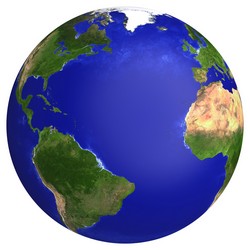Oceans predict the future of climate change
Climate change has the potential to greatly affect human society, economic growth and biodiversity. The world's oceans may be useful to predict the future of climate change, but current models are not yet accurate. The EU-funded OCEANQUANT (Quantification of past ocean circulation) initiative aimed to shed light on the role of the ocean in driving climate change. Researchers combined cutting-edge analytical techniques with state-of-the-art model simulations to do so. OCEANQUANT set up a lab to measure the concentrations of the Th-, Pa-, and U- isotopes. The researchers then combined 231Pa/230Th data with 14C measurements from the same samples of sediment cores in the Pacific Ocean. They also did some model work in addition to the measurements of deep sea sediments. Using models of increasing complexity, they identified the patterns displayed by the 231Pa/230Th sediment samples. It was found that the circulation of the Atlantic Ocean in the past 140 000 years was more stable than once thought. In addition, the current warm mode of the Atlantic's circulation played a key role during the Earth's last cold period, contrary to prior assumptions. OCEANQUANT researchers were better able to understand the behaviour of both 231Pa and 230Th, and they found little differences between glacial and interglacial circulation strength. Researchers still need to model the role of the 231Pa/230Th as a circulation proxy in the Pacific. OCEANQUANT hopes to solve the hypothesis about glacial deep water formation in the North Pacific with a finalised data model approach. This research is expected to provide unprecedented quantitative, large-scale estimates of past changes in ocean circulation, enabling more reliable predictions of future climate change.







